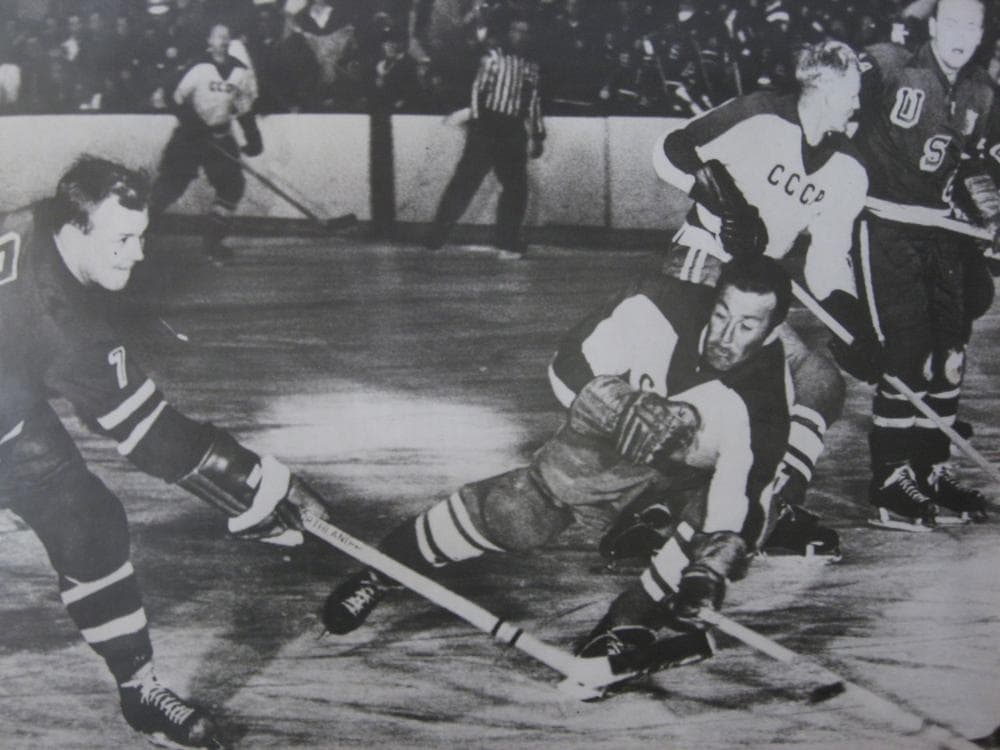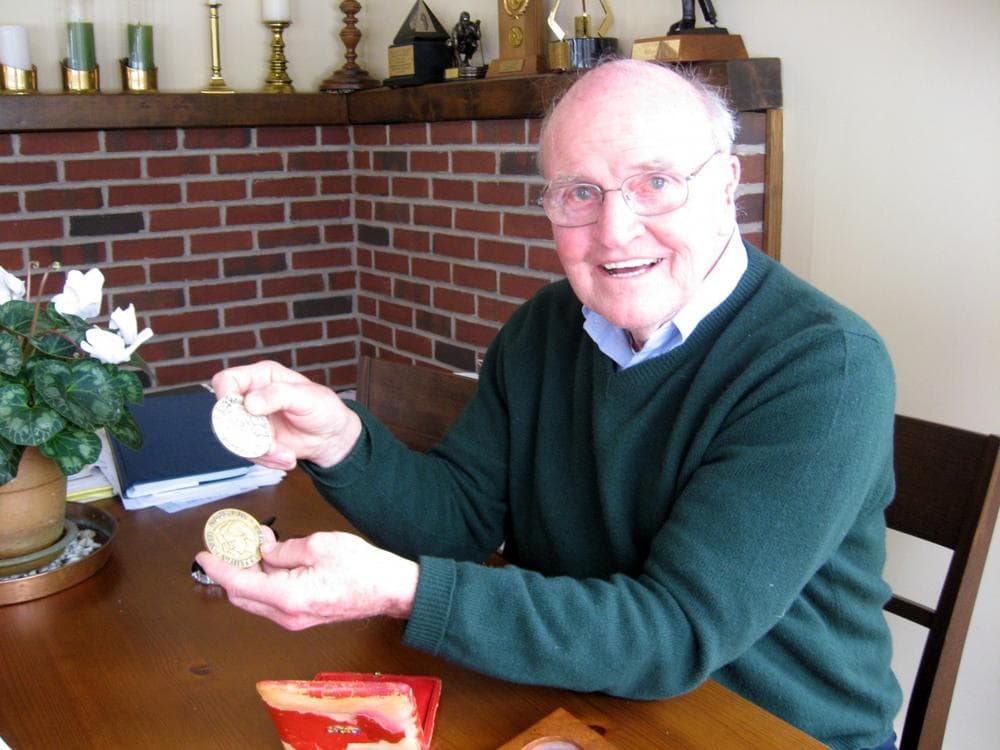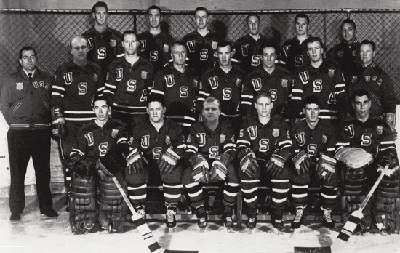Advertisement
Olympic Hockey Legend Recounts Original 'Miracle On Ice'
Resume
Standing in his living room, surrounded by windows, 75-year-old Bill Cleary looks out onto a frozen stretch of the Charles River where a small group of people are skating, hockey sticks in hand, passing around a puck. A German shepherd fruitlessly chases the small black disc. A lone woman floats by on figure skates. A light snow falls, and memories come to life.
"We didn't have any indoor rinks when we were kids," Cleary recalls. "We had to learn on the Charles River — I did because I grew up in Cambridge — on Spy Pond in Arlington and all these little places in Lexington and Concord. We'd find ice wherever it was."
As it turns out, such limitations were perfect training for the young hockey player. When Cleary grew up and played hockey for the United States internationally, all of the competition was held outdoors, rain or shine. "We played in Stockholm one night," Clearly says. "Twenty-five thousand people, in a snow storm! But it was great!"

And it was outside, on natural ice, that the U.S. men's hockey team stunned the world by winning Olympic gold at the 1960 Winter Games in Squaw Valley, Calif. Cleary was the team's high scorer, and the improbable victory has since become known as the original "Miracle on Ice".
Most people remember the "Miracle on Ice" circa 1980 when the U.S. won Olympic gold in Lake Placid. Actually, the comparisons are striking; both squads were largely, if not solely, made up of Bostonians and Minnesotans, both squads were huge underdogs to win and both knocked off the big, bad Soviet Union in the semi-finals to do it.
But few remember the '60 Olympics. It was the first year television even broadcast the Games. Anchored by newsman Walter Cronkite, CBS aired a whole 13 hours of mostly taped footage and highlights, in black and white no less. One of the few live broadcasts just happened to be the spectacular gold medal hockey game between the U.S. and Czechoslovakia. The Americans were losing 4-3, but a blinding six-goal rally in the third period sealed the deal.

Bill Cleary is best known as the All-American player and legendary coach for the Harvard University men's hockey team. The star forward decided against going pro in the mid-'50s, despite invitations from the Boston Bruins and Montreal Canadiens.
"It's probably the best thing I ever did, turning that down, because if I hadn't I would never have played in two Olympic Games," says Cleary, who was also on the silver medal team in 1956 in Cortina, Italy. "Knowing what I know now, I could win 10 Stanley Cups and that wouldn't equal just marching in the parade in 1956."
Cleary laments the addition of NHL players to Olympic rosters. "The only reason the pros are in it is because of money," he groans.
Money and sponsorships — it's a slap in the face to the intended Olympic spirit, as Cleary sees it. "It's not Michael Jordan and Barkley going up to the podium wondering whether they're going to wear Reebok or Adidas," he says. "That's not what the Olympics are about. It's about people. It's about competition. I often said that I think athletes can do more good than politicians, getting people together and producing harmony and spirit among people in different cultures. And I've seen it happen. I've seen it happen."
Click the "Listen Now" button above to hear the interview with Bill Cleary.
This program aired on February 12, 2010.